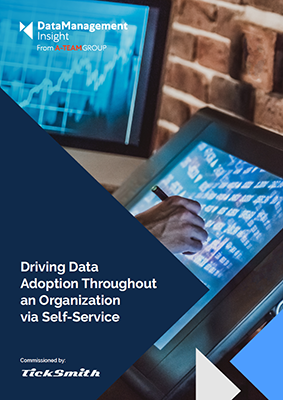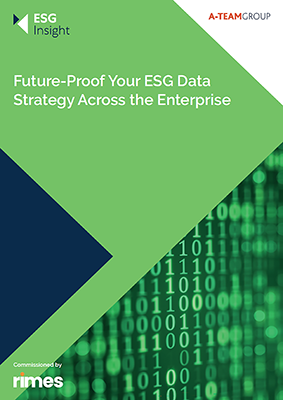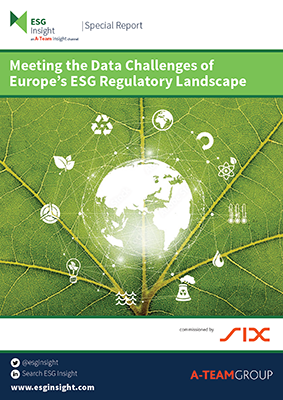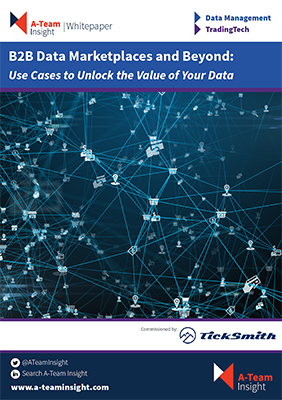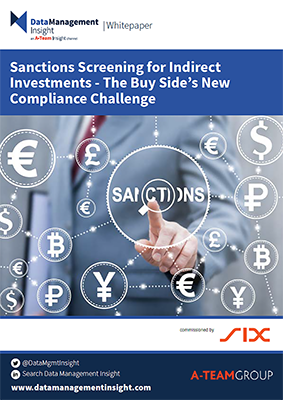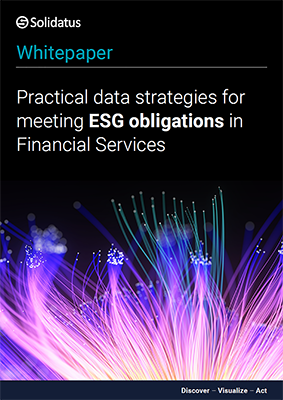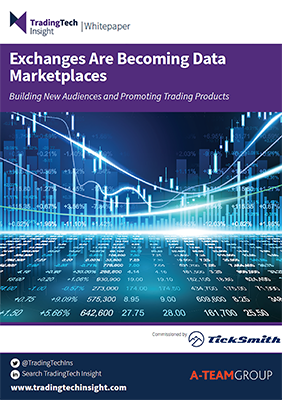Data Management Insight White Paper
Driving Data Adoption Throughout an Organization via Self-Service
Financial institutions and corporations across the board are seeing value in the data sets they generate through their business activities. But harnessing this data to provide valuable insights for internal business teams can be a challenge. One approach is to adopt a self-serve data delivery model that empowers consumers and ensures they get access to...
Future-Proof Your ESG Data Strategy Across the Enterprise
ESG data is now as important to financial institutions as traditional price and reference data. Ensuring that data is accurate and consistent is critical so that can deploy it in their portfolio and risk management strategies as well as regulatory reporting systems. But ESG data is unlike that they would be used to. It’s often...
Creating an Enterprise-Wide Data Fabric to Underpin Digital Transformation in Capital Markets
As they seek to adopt a data-driven approach to their business operations across the enterprise, capital markets firms need to put in place a common data fabric that embeds their single view of the truth, and to underpin analytics, reporting and regulatory processes. But legacy data systems often are not fit for purpose; often fragmented...
Meeting the Data Challenges of Europe’s ESG Regulatory Landscape
The European Union’s ESG reporting regulations continue to evolve and represent the biggest recognition yet by any international authority of the role that financial institutions will play in the climate transition. The Sustainable Finance Disclosure Regulation (SFDR), the EU Taxonomy, the Non-Financial Reporting Directive (NFRD) and the Corporate Sustainability Reporting Directive (CSDR) are intended to...
B2B Data Marketplaces and Beyond
Financial institutions and corporations often generate huge quantities of data as a by product of their core activities. This data – details of historical transactions, customer interactions and metadata for referring to instruments, counterparties or entities – can provide valuable insights for industry participants, and form the basis of a meaningful data sales business. But...
Sanctions Screening for Indirect Investments – The Buy Side’s New Compliance Challenge
The global political climate over the past few years has sparked a jump in the use of sanctions to attempt to influence the behaviour of players in the geopolitical landscape. While sell-side firms are familiar with sanctions and have long been required to monitor the securities they trade, own or recommend to clients to ensure...
Next-Generation Network and Vendor Management: mitigating operational risk in relationship networks
The complex network of relationships that financial institutions have built with multiple partners has created a huge operational burden, resulting in significant operational risk as well as financial and compliance risk. Dating back decades, many of these relationships are now managed as a separate business function, costing organisations millions of dollars. Add in regulatory obligations,...
Practical Data Strategies for meeting ESG Obligations in Financial Services
The ESG investing landscape is poised to become more defined, as competing definitions, standards and regulatory initiatives start to converge. The impact of ESG will be felt far and wide across the financial services community, which will face practical challenges in developing and implementing an ESG strategy that is both effective and avoids box-ticking –...
Data integrity: Your key to confidence in a complex regulatory environment
Despite the recent challenges of the Covid pandemic, regulators have made it clear that they will not accept reporting errors, particularly those that are related to data. Enforcement is more stringent, scrutiny is more in-depth, and the pressure is on to ensure – and demonstrate – that the data underpinning your reporting and activities is...
Exchanges Are Becoming Data Marketplaces
Exchanges and other trading venues have long derived revenue from sales of their data; in some cases they operate substantial businesses based around sales of their real-time quotes and other market data services. But few are well set up to deal with growing demand for other datasets they may generate from their core activities, such...


